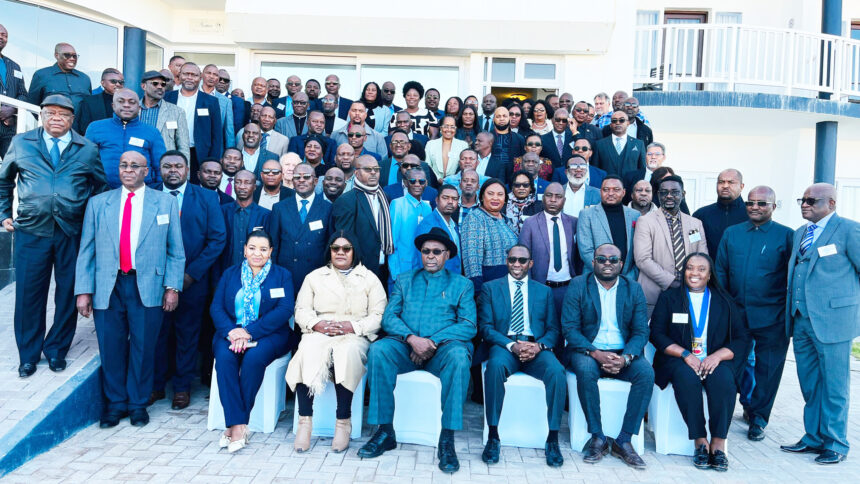SWAKOPMUND – Urban and Rural Development Minister James Sankwasa has raised concern over widespread financial and administrative mismanagement at both regional and local authority levels.
Sankwasa was addressing governors, regional and local councillors, as well as CEOs from the Erongo, Omusati, Ohangwena, Oshana, Kavango East, Zambezi, Kavango West and Kunene regions yesterday during a high-level consultation meeting aimed at strengthening intergovernmental relations.
He said the past two months in office have exposed deep-rooted issues, ranging from the misappropriation of land to repeated violations of the Local Authorities Act 23 of 1992.
“I have observed several issues, both good and bad. There is extreme financial and human resource mismanagement in both regional and local authority councils,” he stated.
Sankwasa also questioned the commitment of elected leaders who are not fulfilling the promises they made to the electorate. “As elected political leaders, where do we find ourselves if the aims and objectives we promised the electorate and affirmed in our oath of office are not fulfilled?” he asked.
He added that residents across the country continue to witness local authorities mishandling land and fixed property, often in direct violation of the law.
“In most cases, this occurs in clear contravention of the Local Authorities Act 23 of 1992, as amended,” he said.
The minister also took aim at what he termed “political gimmicks” by some councils, adding that certain authorities behave as if Namibia is a federal State, acting independently of central government simply because they are led by opposition parties.
He reminded councillors that Namibia remains a unitary State, as enshrined in Article 1(1) of the Constitution.
“Namibia is established as a sovereign, secular, democratic and unitary State founded upon the principles of democracy, the rule of law and justice for all,” he said.
“I plead with those harbouring the misguided notion that belonging to an opposition party makes them independent from central government direction to refrain from such misdirection.”
Sankwasa warned that such behaviour undermines the oath of office and hinders national development. “We must work with all institutions-private sector, churches, traditional authorities and others to build our country. I cannot deliver the President’s mandate alone. Only through your participation, commitment and accountability will we succeed.”
He also stressed that the implementation of the Swapo manifesto 2025–2030 must be carried out across all levels of government, regardless of political affiliation.
“The President made it clear that every Namibian must benefit from government programmes,” Sankwasa added.
He said attention must be given to the formalisation of informal settlements, housing, sanitation and infrastructure in both rural and urban areas.
“We must accelerate land servicing, especially in urban areas, and expand rural housing, water and electricity supply to reduce urban migration. Infrastructure investment and participatory upgrading programmes are non-negotiable if we are serious about inclusive development,” he said.
Also speaking at the opening, Erongo governor Neville Andre emphasised the importance of service delivery. He stated that governors are committed to collaborating with all tiers of government to ensure equitable access to basic services.
“Whether a councillor is from SWAPO or the opposition, our people expect results. We must harmonise development plans, improve coordination and ensure every Namibian benefit from the government’s programmes,” Andre said.
Namibians are calling for visible development, hence, we must act now, he added.
–edeklerk@nepc.com.na



